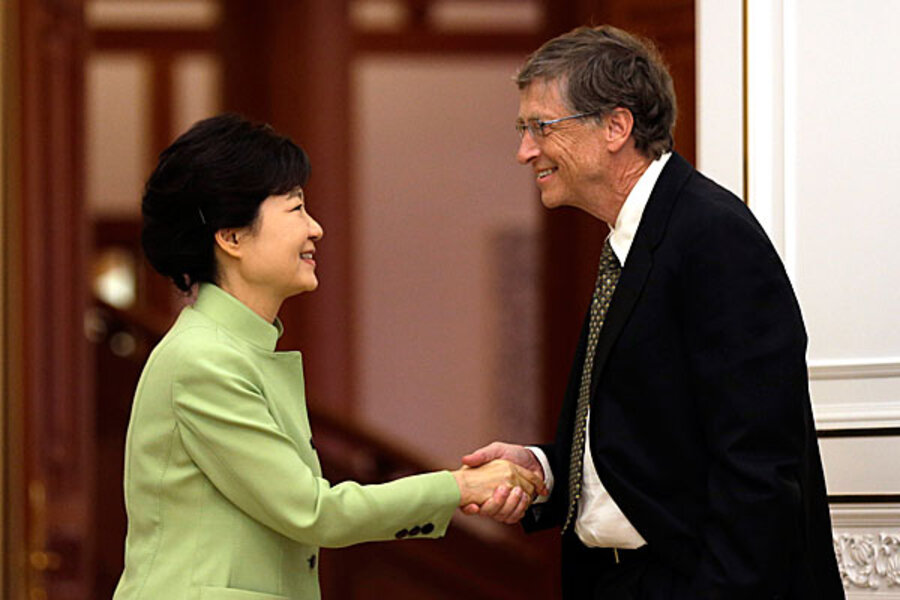Bill Gates sets South Korea abuzz with 'rude' one-handed shake
Loading...
Global etiquette can be tricky. Just ask Bill Gates.
The Microsoft chairman (who is also co-chair of one of the world's biggest charitable organizations) is no stranger to international travel or meeting heads of state. But, on Monday, when he shook hands with South Korea's first female president, Park Geun-hye, Gates made a serious faux pas, which resulted in a cultural kerfuffle.
Gates shook her hand with just one hand. In South Korea, and much of Asia, that's only done in casual settings, with good friends. To top it off, Gates had his left hand in his pocket, signaling his superiority.
"How rude!" was the response in South Korea media. Almost every news organizations carried the photo on the front page.
The proper way to show respect would have been for Gates to clasp the South Korean leader's hand with both of his hands.
Was Gates sending a blunt signal of political disapproval to the new government leader? Was Gates ignorant of Asian etiquette?
There was enough media buzz that the South Korean president's office felt it needed to issue an official statement on the matter: "Bill Gates took a similar pose for a picture when he met former President Lee Myung-bak five years ago. Just think of it as an American style of greeting," according to Dong.com, the website of Dong-a Ilbo, a leading newspaper in Korea with daily circulation of more than 1.2 million.
[Editor's note: Since publication, the president's office contacted The Christian Science Monitor to say that it had issued no official statement about the Bill Gates handshake.]
The first part of that statement is true. In fact, the Atlantic Wire compiled a series of Bill Gates One-Hand Shaking, One-Hand-in-Pocket photos from previous meetings with other world dignitaries, including UN Secretary General Ban Ki-moon, China's President Xi Jinping, and French President Nicolas Sarkozy.
Apparently Gates is consistently casual about his handshakes – with whomever he meets.
While the one-handed Western handshake has become more common in Asia, business etiquette also suggests that one never looks directly in the eyes of the person you're meeting. An exception to that rule is the Philippines. And in many places, a bow is also part of the greeting.
In Cambodia, for example, if you meet a prominent businessman, the proper way to show respect is to place your palms together at chest height and bow at your waist.
There's also a culturally correct way to exchange business cards in Asia, too. Each card should be in English on one side, and the recipient's native language on the other. You present your card with both hands, native language side up and readable to the recipient. When you receive a card, it's also a two-handed affair. Look at it, thank the person, and put in gently in a coat pocket.
For more tips on global etiquette, check out The Christian Science Monitor's quiz on the globally savvy traveler.








